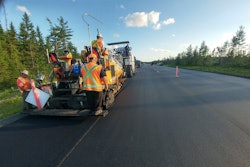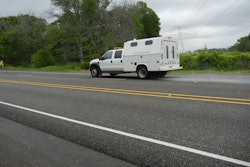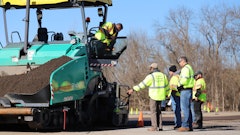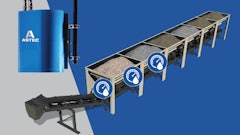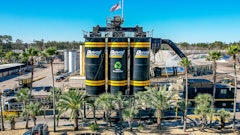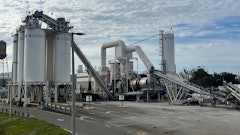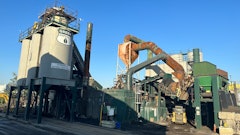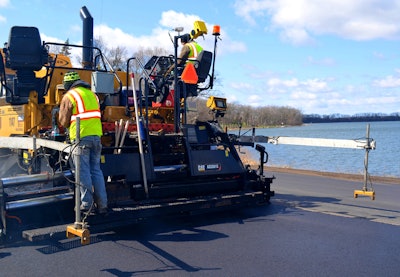
During resurfacing of Highway 29 near Alexandria, MN, the road surface was repaved over a distance of about 30 miles. The company that performed the work, Central Specialities Inc., used the PAVE-IR Scan quality control system for the first time. With this system, the temperature is recorded during asphalt paving and thereby allows conclusions to be drawn about the quality of the asphalt.
For road building companies, a high-quality result translates directly into money. This is due to the fact that, in many states, companies are financially penalized if the road does not meet contractually defined quality criteria. In return, the companies that perform the work are rewarded if the criteria are maintained, the work completed ahead of schedule or the minimum requirements exceeded. For many companies, it is therefore important to be able to provide proof of their work and to be able to verify the quality.
One possibility for recording the quality during paving is the PAVE-IR Scan temperature control system.
First use of this technology in Minnesota
In this construction project, the scanner was employed for the first time in one of the projects used by the Minnesota Department of Transportation for collecting and evaluating temperature data during asphalt paving. The scanner, that is mounted on the back of the paver measures the temperature over the entire paving width.
"The scanner considerably simplifies the recording of temperatures. It is compact and mounted outside of the work area. Moreover, the system is very easy to mount and quite compact. The scanner is, thus, a big step in the right direction", is the response from Central Specialities Inc.
Temperature profile serves as quality proof
The surface temperature can thereby be constantly recorded during asphalt paving and displayed as a temperature profile on the panel on the paver. The temperature profile clearly shows where temperature differentials exceed specifications written by the state agencies. The real time display of thermal image and differential calculations allows the contractor to determine if process changes have had a positive effect on variability.
At the same time, all information is stored locally and via wireless communication to a server and can be viewed with the "Pave Project Manager" software package and used as proof of quality. This is because it has been shown that the paving temperature has a large influence on the quality and service life of the road. If the asphalt mat has large fluctuations in temperatures this can mean material segregation or have adverse effects on compaction uniformity and material density, all of which can lead to premature road failure.
This has been verified in studies undertaken by the Texas Transportation Institute, which were performed using the predecessor model, PAVE-IR, with a sensor beam behind the screed. In Minnesota temperature data has been collected and evaluated by the Department of Transportation for four years. In 2014 at a total of 20 projects have specified the use of thermal data collection systems, all of which will be using either the PAVE-IR Scanner or Beam.
“As a result, we know that the service life of a road increases if segregation is kept to a minimum. And segregation occurs if there are high temperature differences during asphalt paving. This, in turn, means that maintenance and resurfacing costs drop dramatically if the asphalt was paved at the correct, uniform temperature. Signs of wear then do not occur until later and the road needs to be repaved less frequently", explains Paul Angerhofer, MOBA field support technician.




